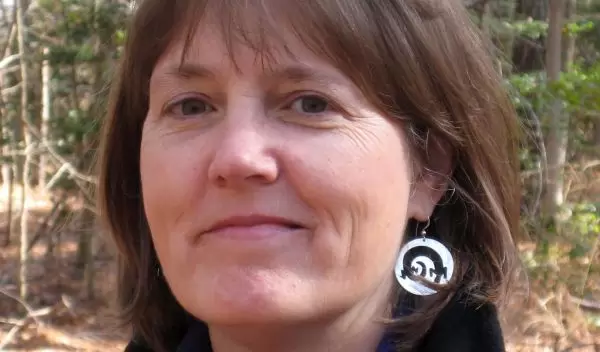
Computer Science Education Week: Expert voices on the value of CS
"Just as every person must know how to swim, so too---in this day and age---every person must have access to learning computer science. In today's world, computer science is the driver of innovation across all disciplines, jobs, and careers. It opens up doors of opportunity to those who have it. While this knowledge is currently held by a narrow band of privileged citizens, our job is to democratize it."
Jane Margolis, Graduate School of Education and Information Studies, UCLA
"Computing is the STEM field with by far the largest projected unmet job demand in the U.S. in the coming years, and yet computer science still is not taught in most U.S. K-12 schools. Computer Science Education Week plays a very important role in improving this situation."
Bobby Schnabel, dean, School of Informatics and Computing, Indiana University
"While it's easy to get kids--all kids--engaged in computing early with robots, e-textiles, and other interactive technologies, engagement alone isn't enough. We need to build their competencies, teach them computational thinking and problem solving skills; we need to give them the opportunity to be not just users, but creators and adapters of technology. We need to show them that these skills are empowering and relevant to their lives, connecting computing to potential careers and interests."
Jan Cuny, program director for Computer Science Education and Workforce Development, National Science Foundation
"Computing is becoming more ubiquitous with all that we do. It is imperative that all students have a foundational understanding of computer science so that they are prepared for the world in which they will live."
Ann Drobnis, director, Computing Community Consortium
"Computer science education is about helping students discover their passions, guiding them through explorations that enhance their knowledge and capabilities related to the big ideas of computer science, and facilitating their creative construction of artifacts and new knowledge related to those passions. The artifacts and knowledge shared by these students have, and will continue to in the future, greatly enhance the world in which we live."
Richard Kick, mathematics and computer science teacher
Newbury Park High School
"Computer science is transforming every aspect of society, and every student deserves an opportunity to learn about computational thinking and creative problem-solving using computational approaches."
Maria Klawe, president, Harvey Mudd College
"Experiencing the benefit of computer science education in a classroom transforms students' views of themselves in the world as competent problem solvers and thinkers. The experience in the computer science classroom empowers students to be creative, explore problems iteratively through both failure and success, and most importantly, to think differently about solving problems with and without the use of a computer! Computer science must make it into the K-12 classroom so that every child has the access and opportunity to transform and become engaged through the joyous process of creating artifacts, solving problems and becoming thinkers that we know that we need for workforce opportunities of today and in their future."
Kelly Powers, director of Computer Science Teacher Leadership, Education Development Center
"I remember as a child solving puzzles with my father, and how much fun it was to figure out the answer. This sense of discovery led me to study mathematics. Today, computational thinking is essential, not only as a foundation for learning science, technology, engineering and mathematics (STEM), but as a way to interact with the modern world."
Joan Ferrini-Mundy, assistant director for Education and Human Resources, National Science Foundation
"Learning computer science not only builds 21st-century skills like teamwork and problem-solving across exciting fields including programming, robotics and videogame development, it's also a wonderful gateway into the larger universe of STEM. Creating new hands-on learning opportunities, and inspiring all students to excel in computer science and related STEM fields, will support students' success as they pursue their dreams."
Russell Shilling, executive director of STEM, U.S. Department of Education
"Computer science education is in an exciting renaissance that we can leverage to redefine who reaps the benefits of computer science education in college, career and life. If we take advantage of this unprecedented opportunity to bring coherence to our varied efforts, align our interests, and agree on what quality looks like, we can put this revitalization on a trajectory toward permanently increasing opportunities for all kids."
Jeanne Century, director, Outlier Research & Evaluation, CEMSE, University of Chicago
"How can we prepare our youth to participate in our democracy without a foundational understanding of the discipline that is pervasive in all of our lives? Yet, very few public schools provide access to computer science education, and when they do, it is often taught to only a narrow group of privileged students. To uphold our country's democratic ideals and broaden computer science participation, we must support schools and teachers in their quest to bring this knowledge to all students."
Joanne Goode, associate professor of Education, University of Oregon
"NCWIT recognizes the importance of CSEdWeek as opportunity to introduce computing in engaging ways to K-12 students, especially girls and other underrepresented groups, who might know very little about or have significant misconceptions about technical careers. By talking with students early in their education about how their current computing interests and talents line up with courses of study and the careers that follow, we can encourage them not only to be avid users of technology, but to create the technical innovations that continue to shape our society."
Lucy Sanders, CEO and co-founder, National Center for Women in Information Technology (NCWIT)
"Coding literacy is becoming just as important as written literacy or math literacy. It's an amplifier for getting things done, and for achieving dreams."
Christopher Hoadley, program director, Cyberlearning program, National Science Foundation
"Computer science is not just about coding. It's about thinking and problem-solving and therefore, it should be accessible to all students."
Mary Patterson, Albert Einstein Distinguished Educator Fellow, National Science Foundation
